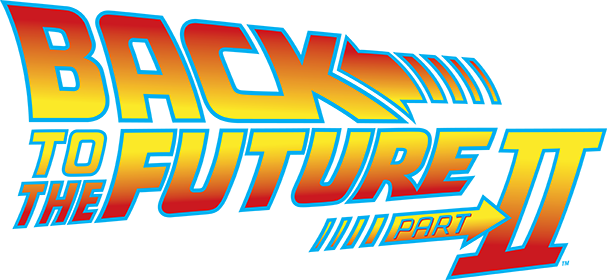July 15, 1964
The Universal
Studio Tour opened.
The
Tour is the signature attraction at the park, and goes into a
working movie
studio, with various film and Television sets on the lot. In
recent years, guests have sat in multi-car trams for the duration of the ride.
The Tour lasts about 45–50 minutes and is led by a live tour guide who can
be seen throughout the tram on video screens. It travels through the Front Lot,
Backlot and various attractions, passing sets and props from movies along the
way.From the beginning, Universal had offered tours of
its studio. After Carl
Laemmle opened Universal City on March 14, 1915, he
would later invite the general public to see all the action for an admission
fee of just $0.05, which also included a lunch box containing chicken inside.
There was also a chance to buy fresh produce, since then-rural Universal City
was still in part a working farm. This original tour was discontinued in around
1930, due to the advent of sound films coming to Universal.Ironically, the modern Universal Studio Tour was
initially reborn as a way to sell more lunches in the Studio Commissary.
The late 50’s and early 60’s were a difficult time for Hollywood studios. The
arrival of television had weakened movie attendance and more and more
productions were going on location to save costs. The grand old movie back lots
were quickly becoming a thing of the past. In the mid 1950’s, Universal
began letting bus companies drive on to the property (the same bus companies
that offered guided tours of the homes of Hollywood stars) as a way to increase
revenues. The studio charged the bus companies a small fee and also benefited
from the extra lunches they could sell to the tourists in the Studio
Commissary. The bus drivers were given a hand-typed script to read that
highlighted the studio facilities as well as hyped upcoming Universal releases
like Bonzo Goes to College and Monster on the Campus.When MCA purchased Universal in the late 1950’s,
they began to look for a way to revive the old Studio Tour as part of a new
image for Universal City Studios. In 1963 legendary movie mogul Lew Wasserman,
then president of MCA/Universal, asked Vice President Al Dorskind to look into
the feasibility of creating a permanent tour. The modern tour was established to include a series
of dressing room walk-throughs, peeks at actual production, and later, staged
events. This grew over the years into a full-blown theme
park.
The Universal Studio Tour at that time consisted of
two trams and a handful of eager young tour guides; including John Ford III
(grandson of famous western director John Ford) and Dan Milland (son of Academy
Award winning actor Ray Milland). The early tour was 90 minutes and included a
stop off at the studio commissary for lunch and a make-up show (presented by
Mike Westmore of the famous Westmore family of make-up artists) held in the
commissary basement. 38,184 guests rode the Universal Studio Tour in its first
year.
July 19, 1989
Rebecca
Shaeffer (age 21) is murdered at her Los Angeles home by
Robert John Bardo, a mentally unstable man who had been stalking her.
Schaeffer’s death helped lead to the passage in California of legislation
aimed at preventing stalking.
Schaeffer was born November 6, 1967, in Eugene, Oregon. She worked as a teenage
model and had a short stint on the daytime soap opera One Life to Live,
but was best known for co-starring with Pam Dawber in the television sitcom My
Sister Sam. Bardo, born in 1970, had written Schaeffer letters and
unsuccessfully tried to gain access to the set of My Sister Sam, before
showing up at her apartment on July 19, 1989. The obsessed fan had reportedly
obtained the actress’s home address through a detective agency, which located
it through records at the California Department of Motor Vehicles. On the day
of the murder, Schaeffer reportedly complied with Bardo’s request for an
autograph when he appeared at her home and then asked him to leave. He returned
a short time later and the actress, who reportedly was waiting for someone to
deliver a script, answered the door again. Bardo then shot and killed her.Arrested the next day in Tucson, Arizona, Bardo was later
prosecuted by the Los Angeles County district attorney Marcia Clark, who later
became famous as a prosecutor in the O.J. Simpson trial. In 1991, Bardo was
convicted of capital murder and sentenced to life in prison without the
possibility of parole. In 1994, California passed the Driver’s Privacy
Protection Act, which prevented the Department of Motor Vehicles from releasing
private addresses.
The 2002 film Moonlight Mile, loosely inspired by Schaeffer’s story,
was written and directed by Brad Silberling, who had been dating the young
actress at the time of her death.
July 20, 1969
Apollo 11 was the first manned mission to land on the
Moon.
The first steps by humans on
another planetary body were taken by Neil Armstrong and Buzz Aldrin. The
astronauts also returned to Earth the first samples from another planetary
body. Apollo 11 achieved its primary mission - to perform a manned lunar landing
and return the mission safely to Earth - and paved the way for the Apollo lunar
landing missions to follow.
July 21, 1924
Jesse Donald "Don" Knotts is born.
The comedic actor best known for his
portrayal of Barney Fife on
the 1960s television sitcom The Andy
Griffith Show (a role which earned him five Emmy Awards), and as landlord Ralph Furley on the television sitcom Three’s Company in the 1980.
July 15, 1964
The Universal
Studio Tour opened.
The modern tour was established to include a series of dressing room walk-throughs, peeks at actual production, and later, staged events. This grew over the years into a full-blown theme park.
The Universal Studio Tour at that time consisted of two trams and a handful of eager young tour guides; including John Ford III (grandson of famous western director John Ford) and Dan Milland (son of Academy Award winning actor Ray Milland). The early tour was 90 minutes and included a stop off at the studio commissary for lunch and a make-up show (presented by Mike Westmore of the famous Westmore family of make-up artists) held in the commissary basement. 38,184 guests rode the Universal Studio Tour in its first year.
July 19, 1989
Rebecca
Shaeffer (age 21) is murdered at her Los Angeles home by
Robert John Bardo, a mentally unstable man who had been stalking her.
Schaeffer’s death helped lead to the passage in California of legislation
aimed at preventing stalking.
Arrested the next day in Tucson, Arizona, Bardo was later
prosecuted by the Los Angeles County district attorney Marcia Clark, who later
became famous as a prosecutor in the O.J. Simpson trial. In 1991, Bardo was
convicted of capital murder and sentenced to life in prison without the
possibility of parole. In 1994, California passed the Driver’s Privacy
Protection Act, which prevented the Department of Motor Vehicles from releasing
private addresses.
The 2002 film Moonlight Mile, loosely inspired by Schaeffer’s story,
was written and directed by Brad Silberling, who had been dating the young
actress at the time of her death.
July 20, 1969
Apollo 11 was the first manned mission to land on the Moon.
July 21, 1924
Jesse Donald "Don" Knotts is born.
The comedic actor best known for his portrayal of Barney Fife on the 1960s television sitcom The Andy Griffith Show (a role which earned him five Emmy Awards), and as landlord Ralph Furley on the television sitcom Three’s Company in the 1980.



.jpg)











